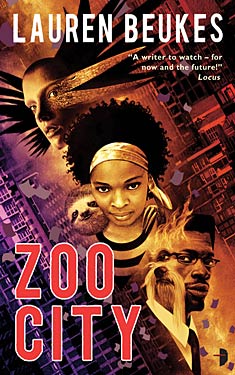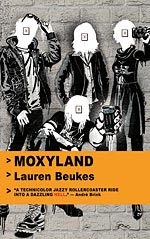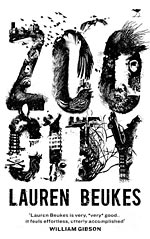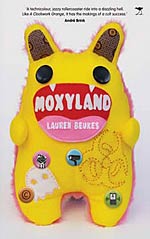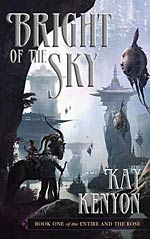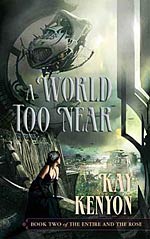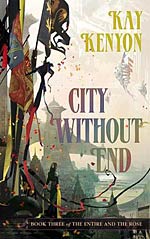Ask Seanan McGuire Anything – The Interview
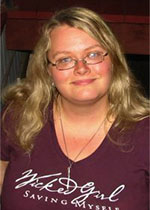 This is the second in our Ask an Author Anything interview series and this time we have multiple Hugo nominated author Seanan McGuire (AKA Mira Grant). The way it works, as you may recall from our first post, is that we get questions from our members and visitors who then vote on their own questions. We take the most popular questions asked and send them off to the author.
This is the second in our Ask an Author Anything interview series and this time we have multiple Hugo nominated author Seanan McGuire (AKA Mira Grant). The way it works, as you may recall from our first post, is that we get questions from our members and visitors who then vote on their own questions. We take the most popular questions asked and send them off to the author.
We arranged this interview through Seanan’s, or perhaps I should say Mira Grant’s, publicist at Orbit who again has sent along some books for us to give away. Check out the details at the end of the interview for your chance to win! In addition to this interview Seanan did a guest blog post with us where she tried mightily to gross us out about parasites the subject of her newest book as Mira Grant, Parasite, coming out from Orbit at the end of October. You don’t want to miss that post… or maybe you do. Now, on to the interview!
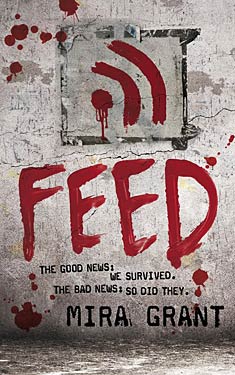 WWEnd: Your Newsflesh series have received nominations for the Hugo, Philip K. Dick, and Shirley Jackson awards. You don’t normally see that combination of awards given for the same book. Which nomination meant the most to you personally?
WWEnd: Your Newsflesh series have received nominations for the Hugo, Philip K. Dick, and Shirley Jackson awards. You don’t normally see that combination of awards given for the same book. Which nomination meant the most to you personally?
SMG: The Hugo, definitely. The Philip K. Dick and Shirley Jackson awards are incredible honors, and I squealed when I was notified of the nominations, but I’ve been dreaming of the Hugo since I was a little girl watching Ray Bradbury Presents in my grandmother’s living room. Having a rocket for fiction of my very own would mean the absolute world to me.
WWEnd: It was reported last year that you had optioned film rights for Feed. Are we any closer to seeing your story on the silver screen? If you had the opportunity, would you want to write the screenplay?
SMG: This is a question I get a lot, and it makes me cringe, because people never seem to want to believe the honest answer. Here is the honest answer: If I knew anything that I was allowed to tell you, it would have been announced already. That doesn’t mean I know things I can’t tell you. I may know nothing at all. I may not even know whose shoes these are. But I am very vocal about the things that I’m allowed to say, and I’m incredibly scrupulous about not saying things I’m not supposed to. As to whether I’d write the screenplay, no, I would not. That’s not my art form, and I’m too close to the material to clearly see what needs to be cut in order to make the jump to another medium.
Ask Seanan McGuire Anything
 Last month, we launched an exciting new monthly feature: an series interview with some of the most celebrated authors in the SF/F/H genres, that started with N. K. Jemisin. The questions came from you, the WWEnd reader. We are now ready to announce that our next author will be Seanan McGuire, the urban fantasy writer, who may be better known to some WWEnders as Mira Grant, the merciless author of the Newsflesh trilogy (nominated for both the Shirley Jackson and Philip K. Dick awards, and thrice nominated for Hugos) as well as the nascent Parasitology series.
Last month, we launched an exciting new monthly feature: an series interview with some of the most celebrated authors in the SF/F/H genres, that started with N. K. Jemisin. The questions came from you, the WWEnd reader. We are now ready to announce that our next author will be Seanan McGuire, the urban fantasy writer, who may be better known to some WWEnders as Mira Grant, the merciless author of the Newsflesh trilogy (nominated for both the Shirley Jackson and Philip K. Dick awards, and thrice nominated for Hugos) as well as the nascent Parasitology series.
A key component of the interview series is the Urtak poll, embedded at the top of this post. Just read the questions and tell us whether you want each one to be asked. To vote, click “Yes” if you would like to see her answer the question or “No” if you don’t care (please don’t select “I don’t care,” though. I’m told it messes up our metrics. If you don’t care, then answer “no”). When you have voted on all submitted questions, you will be able to add your own questions. You may also click on the green “Ask” button at the top of the Urtak survey, but please do all of the voting first, in case someone else has already asked your question. It need not be a yes/no question. It’s just that WWEnders will then vote yes/no on whether they like the question.
The most popular questions will be asked first, so don’t split your vote by asking the same question twice!
10 Questions – Lauren Beukes
Lauren Beukes is the author of Zoo City, a pseudo-fantastical, hardboiled and gritty thriller about crime, magic, the music industry, refugees and redemption set in a re-imagined Johannesburg. It has been nominated for both the 2011 Arthur C. Clarke Award and the 2010 BSFA. The novel already won the Kitchies Red Tentacle for the 2010 book that “best elevates the tone of geek culture.” Moxyland, her first novel, set in a not-so-distant futuristic Cape Town (where she lives), is a haunting vision of what corporatocracy can be. Her non-fiction Maverick: Extraordinary Women From South Africa’s Past (Oshun 2005) was long-listed for the 2006 Sunday Times Alan Paton Award, and tell the real-life stories of raconteurs and renegades, writers, poets, provocateurs and pop stars, artists and activists and a cross-dressing doctor.
Ms Beukes was kind enough to answer a few questions about her novels.
EJ: First, let me congratulate you on the Red Tentacle, and the nominations for the Clarke and BSFA awards. Both your novels have received wide acclaim and rave reviews. Was this anything like you expected when you wrote them?
LB: You always hope, nervously, that your books are going to be able to hold their own when you send the scrappy little darlings out on their own into the big bad world. But it’s tremendously gratifying – and humbling – when the reception is so overwhelmingly positive. (And grounding when it’s not – as was the case at my mother-in-law’s 75th birthday when one of her very nice elderly friends turned to me and said, “I did try to read your book, but it was really just impossible.”)
EJ: Which authors and what books have most influenced your writing, structurally and stylistically?
LB: David Mitchell’s Cloud Atlas, William Gibson’s Pattern Recognition, Margaret Atwood’s The Handmaid’s Tale and Oryx & Crake, Alan Moore’s Ballad of Halo Jones, Watchmen and V for Vendetta, Philip K Dick’s A Scanner Darkly, Lorrie Moore’s short stories, TC Boyle’s Tortilla Curtain, Jonathan Franzen’s The Corrections, Paul Hoffmann’s The Wisdom of Crocodiles, Joyce Carol Oates’s anything, William Boyd, Haruki Murakami.
I think what those things have in common is gorgeous writing serving smart, inventive and ultimately surprising stories.
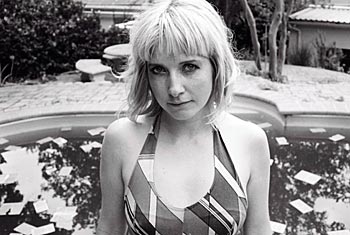
EJ: Both Moxyland and Zoo City are first-person narratives – in fact Moxyland has 4 different first-person perspectives. How did you decide you were going to write in first-person? Do you have a preference for first-person narratives in your own reading?
LB: It just happened that way. I like the immediacy and presence of first person fiction. It’s not something I actively seek out in my reading or my writing. I think the new book is going to be third person, but we’ll see.
EJ: Moxyland was your debut novel, but not your first book. In 2005 you published Maverick: Extraordinary Women From South Africa’s Past. What inspired you to switch gears from history to science fiction? Do any of your fictional characters borrow from the historical figures you’ve written about? Zinzi is most assuredly an extraordinary woman.
LB: I was commissioned to write Maverick by the publisher based on what she’d read of my journalism. But I’ve always loved history and it was great teasing out the narrative of these extraordinary women’s lives, particularly as I got to choose the line-up, which ranges from a street-fighting jazz chanteuse to a serial poisoner to a glam commie journo revolutionary.
I’m sure those histories have seeped into my subconscious, but I haven’t knowingly whipped them out.
Zinzi’s a mash-up of people I know and some parts of me and wholly herself.
EJ: Moxyland is a dystopian cyberpunk novel whereas Zoo City would be considered an urban fantasy. Both are novels that many would consider a hard sell in South Africa where much of the literature is dominated by the apartheid experience. How has apartheid affected or informed your fiction? Where does your brand of science fiction fit into the broader South African context? Is there a future for a uniquely South African brand of science fiction?
LB: Phew. I think traditionally they probably would have been a hard-sell. To generalize horribly; South African literature was very focused, necessarily on apartheid and it’s aftermath for a long time. I think we’ve got most of that out of our system, but that’s not to say it’s not still relevant. I think of both Moxyland and Zoo City as apartheid novels. Moxyland is a neo-apartheid state, a what-if about how easy it would be to slip back into that space. Zoo City deals with artificially imposed segregation of the animalled versus ordinary people, refugees and rich vs. poor, which is very much the state we’re in at the moment – economic apartheid between rich and poor with the divides growing bigger every day.
I don’t know where it fits in or even if it is a particular brand of science fiction. I hate labeling because it wedges books into boxes that immediately cuts off part of your potential audience who get freaked out by the shape of those boxes. Can I come up with my own labels? Zoo City is muti noir and Moxyland is future urban thriller.
I do think there is more space to play and I’m very excited by some of the new releases coming out of SA like Lily Herne’s slyly political YA zombie apocalypse novel, Deadlands or Adeline Radloff’s time-travelling superhero romp, Side-Kick or SL Grey’s horror, The Mall – all of which have a smart, subversive, socially-aware edge. It’s a necessary reflection of where we’re writing about, I think, that we’re all keenly aware of it.
EJ: Zoo City is a hardboiled stranger-than-fiction story with many layers and some proverbial “monkey on your back” symbolism. What is Zoo City really about? What do you want your readers to take away from your story?
LB: It’s about guilt and the possibility of redemption, how we’re burdened by the past and how that affects our future. It’s very much about crime, but again, also about apartheid. The thing at the end (no spoilers here) is that thing for a very particular reason and it ties in to our recent history.
EJ: What were the particular influences for Zoo City? I’m thinking in particular of the belief in mashavi, which not many international readers would be familiar with. Where did your research take you?
LB: Sjoe. I’m inspired by everything. I’m a pop culture sponge. I was very interested in the idea of crime and punishment, guilt and redemption, the music industry and pop factories that churn out wholesome teen pop stars and what that does to them (and here I raided some of Brenda Fassie’s history – one of the women of Maverick) and how different belief systems play out, especially muti (African magic – which can be benign herbalism or gruesome rituals performed with human body parts) and how South Africans would interpret a new global phenomenon in a uniquely South African way.
The idea of magical animals crops up in a lot of different cultures, from the ancient Israelites scape goats to the totem animals of some Native American tribes to Jiminy Cricket, the idea of the monkey on your back. I was reading a lot of South African mythology and I found the idea of mashavi. Ancestor-worship is a big part of traditional black South African beliefs and the mashavi are spirits that have become lost who manifest themselves as an animal that sometimes attaches itself to a person to good or ill effect.
In the book, everyone has a different theory about the animalled (as we have different theories in the real world about what happens after you die) but no real answers. Mashavi was an authentically South African take on that.
The research took me to some very interesting places, from visiting the Central Methodist Church to meet refugees sheltering there to walking round Hillbrow talking to people to interviewing music producers and having a consultation with a sangoma (or traditional healer) at the Mai Mai traditional healers market. She said I had a dark shadow over my life and prescribed the ritual sacrifice of a black chicken to get rid of it. I politely declined.
EJ: Your characters are very well developed. Zinzi December, in particular, is extremely well-written, with palpable conflicting desires and motivations. She’s often dishonest and she certainly doesn’t always make the best decisions. She gets run through the wringer on quite a few occasions – as do the characters in Moxyland. How attached do you get to your characters and do you ever feel bad about what you put them through? Did you know Zinzi’s fate when you started to write Zoo City?
LB: Thank you. I try to create complex, interesting, flawed characters. Sometimes the flaws make them frustrating – there were times I wanted to shake Tendeka in Moxyland, for example, for being so blinded by his self-righteous anger, but it’s true to the character.
And yeah, I do terrible things to my characters. I’ve had readers write me angry emails about Moxyland in particular, saying “how could you!” But I knew from the moment I started writing it which way it was going to go and what was going to happen to that character. It’s not my fault. The story demands it.
EJ: Your publisher, Angry Robot, is an up and coming genre specialist and Moxyland was one of their very first publications. Tell us a little about this history and your reasons for going with, what was then, a startup publishing house.
LB: I spent a year tentatively shopping Moxyland around to international agents and getting my soul crushed in the process. Then I took it to Jacana, South Africa’s most provocative and interesting and forward-thinking publisher who snapped it up right away, literally. The publisher, Maggie Davey read the manuscript on the plane on the way to the Frankfurt Book Fair and by the time she landed I had a book deal.
The book did well in South Africa and got some rave reviews, so I cowgirled up and started sending it out again. It was rejected by a slew of literary publishers who generally had very encouraging things to say and then it landed with Angry Robot who were then Harper Collins’ brand new edgy-as-fuck SF imprint who came back fast and hard with a two book deal.
I really liked the way they handled themselves in emails. There was no bullshit, no run-around and they really got the book. They’ve done wonders with it. I’m so impressed with their list generally and the way they’ve built an outspoken and loyal community through clever use of the Interwebs.
EJ: Moxyland and Zoo City each feature different covers for their South African and international editions. Did you have any say in their design? Are you satisfied that they relay the proper feeling and context of your stories?
LB: I was lucky to hand-pick my cover designers and I think they both did an amazing job in their very distinctive styles and really respected the spirit of the work and worked closely with me to get the right tone and feel. They were amazing to work with and gave me lots of opportunity to provide feedback. Interestingly, both were working from the same set of reference pictures – photographs I’d taken of Hillbrow on my cell phone camera and images of people I’d found online that I felt evoked a sense of the characters I’d written. Joey Hi-Fi’s black and white cover is evocatively beautiful and incredibly detailed with lots of Easter eggs about the plot within. John Picacio did an amazing job of portraying a kick-ass black female protagonist and he got Zinzi’s sass exactly right.
EJ: What can you tell us about any current projects you’re working on? What can we look forward to from here? Will you continue to set your fiction in South Africa?
LB: I’m working on a new novel – an apartheid thriller tied in to the real-life Occult Crimes Unit, with several other novels sitting on the backburner and practically boiling over already (really need to finish this one so I can get to them).
I just directed a documentary called Glitterboys & Ganglands about the biggest female impersonation pageant in South Africa, Miss Gay Western Cape, which will hopefully be debuting at the Encounters Festival in Cape Town.
And I’ve written my first comic (so excited), a nine pager for Vertigo’s Strange Adventures anthology due out May 25th.
EJ: I really appreciate your time in what I can only assume to be generally quite a hectic schedule. Thank you for participating in this interview and giving us further insights into your work. I for one am eagerly anticipating your next book and hold thumbs for a Hugo nomination in the near future. Judging by the laudable responses to Zoo City, I’m certain that possibility is not too presumptuous. The book is positively one of my favorite novels of all time and Moxyland a very close second.
LB: Thanks so much. I always get very shy around praise and my kneejerk response is to self-deprecate like crazy. But it’s the people who connect with your work who make it mean something. So thank you.
You can follow Lauren on twitter @laurenbeukes and stay up to date with her comings and goings by visiting http://laurenbeukes.book.co.za/
10 Questions – Kay Kenyon
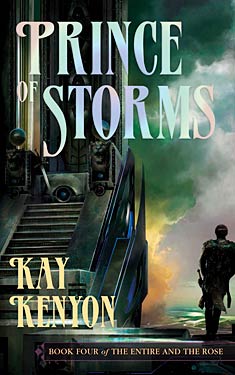 Kay Kenyon has written 10 books to date including 2004 Campbell Award finalist The Braided World, and 2002 Philip K. Dick Award nominated Maximum Ice. Most recently she completed The Prince of Storms, the final volume of her critically acclaimed quartet, The Entire and the Rose.
Kay Kenyon has written 10 books to date including 2004 Campbell Award finalist The Braided World, and 2002 Philip K. Dick Award nominated Maximum Ice. Most recently she completed The Prince of Storms, the final volume of her critically acclaimed quartet, The Entire and the Rose.
Miss Kenyon was kind enough to answer some questions about her work for Worlds Without End.
DP: First off, thank you for the interview and congratulations on the completion of The Entire and the Rose quartet. I really enjoyed the series. I stumbled upon the free Bright of the Sky eBook on Pyr’s blog and I was hooked. How did the idea of offering it up for free come about? What did you think of the idea at the time and how has it worked out for you?
KK: The Idea came from my editor at Pyr, Lou Anders. He’s one of those people with loads of energy, street smarts, and marketing know-how–as well as being a brilliant editor. I liked the idea at the time, since I thought it would introduce more people to the series, and to the universe I had created. The hope was that people would like book one enough to at least buy book two. Turns out, the downloads of all four books have soared since that free offering in August, 2010. Not only that: I’ve experienced a jump in people following my blog, buying my back list and joining my newsletter list. So, yes, very pleased.
DP: The Entire and the Rose is your first big series. Was the story arc something you planned to be four books long from the start or was it something that grew in the writing?
KK: It was always going to be four books, but for rather superficial reasons. My agent said, "Everybody does trilogies, how about four volumes?" The idea was to signal, hey, this story is too big for a trilogy! It backfired a little, however. We should have made clear on the covers of the books that it was a "quartet." Many people thought the story was over at the end of Book Three, and were disappointed that all of the plot lines didn’t tie off. I still worry that people didn’t find their way to Book Four, Prince of Storms.
DP: Did you enjoy having the larger canvas to tell your story? Is it something you want to try again?
KK: It had its pleasures, but I doubt I’ll do it again. I might write a series, but not one with a continuing story arc. Turns out (and I guess this was predictable) a four-book story is very complicated, not just from the standpoint of size of the story, but the time frame involved to write it. Over the five years of writing, I was in danger of forgetting what I had done, or intended to do–and all this despite a detailed outline (quickly out of date) notebooks, charts and scene lists. I felt like I was managing a hurricane.
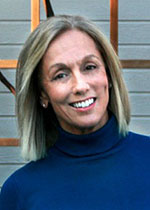
DP: The Entire and the Rose can be classified as science-fantasy which seems to be a bit of a departure from your previous books. Was that a conscious decision to write something different?
KK: No, it just happened. Much of the Entire, the setting for the series, has its technologies hidden. The builders of the Entire wish to keep technology to themselves, to freeze civilization in a changeless state of wonder and harsh beauty. I kept pushing the limits of what the Entire was, what it could let you do–and in the end these things were fabulous enough to appear magical.
DP: The fantasy elements expose your talent in that genre. Have you ever wanted to try your hand at fantasy?
KK: Yes, definitely. I have in mind a story steeped in magic and the culture of 15th century Italy; and one with a twisted 19th century colonialism. So I seem to be on a magical history tour, here.
DP: Your characters are very well developed with often-times conflicting desires and motivations. Do they ever break out of your character outlines or otherwise surprise you as you’re writing them? When a character starts to change do you run with it or do you try to make them conform to the expectations of your narrative?
KK: My central characters only rarely present a face I haven’t planned. They have a core essence that is not likely to change. Characters that have small parts in the story are more likely to surprise me, since I haven’t thought much about them. I allow it only if it adds to the story rather than pulling it in some dead-end direction, no matter how interesting. Part of novel writing is knowing what to leave out. I don’t invest characters with their own authorial power, following them as though they had a mission. I make them up. I am rather a despot!
DP: Some of your characters, especially your heroes like Titus Quinn and his family, get run through the wringer. How attached do you get to your characters and do you ever feel bad about what you put them through?
KK: No, I am thrilled with suffering, actually. The more I can believably, meaningfully put them through, the better. But, to soften my image, I will confess that I have been known to cry at a character’s death. (It didn’t stop me from killing them, though!)
DP: Do you get the same satisfaction writing the scenes where the bad guys get their comeuppance as we get from reading those scenes? I’m thinking of two characters in particular that I couldn’t wait to see fall.
KK: I believe I know whom you mean! But after thinking about this question a bit more, I realize that I don’t get that kind of pleasure from "justice served" in the plot. Oddly, as an author I find I am at one remove from my characters. I am actively plotting, deepening motives, considering dramatic ways to present things… and this sort of conscious manipulation of people and events separates me from ordinary reactions. When a character falls deservedly far, I am just hoping it is as interesting as it can be.
DP: The parallel universes in The Entire and the Rose seem ripe for further exploration. Do you have any plans to return there for future books and if so what shape might those books take? Do you feel any compulsion to write more stories in that world to satisfy your fans?
KK: At first I needed a long rest from the quartet, but now I am considering whether fans might like more. It may not be a novel, but it might be short stories offered on my website.
Q: What can we expect to see from you in the future? What have you got in the works now?
KK: See above! Question 5. I am very into fantasy at the present time. And I actively teach the craft of writing fiction at my blog, Writing the World, www.kaykenyon.com.
My thanks to Miss Kenyon for answering our questions. If you’ve not read her before you should definitely take advantage of the free offer from Pyr and give her a try. You’ll be glad you did. I’m certainly looking forward to more tales from the Entire.
10 Questions – Lois McMaster Bujold
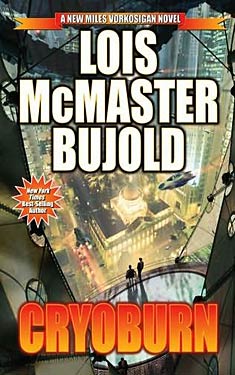 One of my favorite SF writers is Lois McMaster Bujold. She has written dozens of works of fiction and non-fiction since her first three novels, Shards of Honour, The Warrior’s Apprentice and Ethan of Athos were all published in 1986. Lois has remarked that her plots are often predicated on "the worst possible thing you could do" to a character.
One of my favorite SF writers is Lois McMaster Bujold. She has written dozens of works of fiction and non-fiction since her first three novels, Shards of Honour, The Warrior’s Apprentice and Ethan of Athos were all published in 1986. Lois has remarked that her plots are often predicated on "the worst possible thing you could do" to a character.
Lois won the Nebula Award for Falling Free and The Mountains of Mourning and the Hugo Award for The Vor Game, Barrayar, Mirror Dance and The Mountains of Mourning. She was nominated for the John W Campbell Award in 1987.
I had an opportunity for a brief interview regarding the latest book from the Vorkosigan universe, CryoBurn.
MJ: It’s been quite a while since you wrote a Vorkosigan book. Is it hard for you to return to a character or series after a period of time? What preparation do you have to do?
LMB: I can’t say that it was any harder than starting any other book, no. I didn’t do a lot of prep — it was the new, older Miles, not his former, younger versions, who I had to get my head around, after all. His voice came back to me readily. I do a certain amount of setting-and-plot development in advance, in notes, but the bulk of it is assembled on the fly once the characters are set in motion. It’s like laying tracks in front of a moving train, which are built of materials the train is carrying.
MJ: I love how many of the Vorkosigan books seem to feature different medical technologies. Uterine replicators, the various treatments Miles has gone through, the technology in Beta Colony and Jackson Whole. In a parallel universe would you have pursued an advanced research or medical degree?
LMB: Possibly. I was a biology major in college and worked in medical technology in my youth — as a pharmacy company lab tech, a drug information office clerk, and most importantly for my store of human observation, as a drug administration technician on nursing units (a sort of nurses’ aide who gave all medication except IVs) for upwards of a decade. I have also been a science fan all my life, enjoying pop-sci non-fiction reading. And I was interested in nature photography, at one point.
All signs point to my psyche being built to be a writer, though. I’m still not entirely sure if the enjoyment of fiction isn’t really just a clever dissociative disorder, and once we all have the right meds, we’ll have no need for art to make our brains feel better. Now, there’s a SF plot…
MJ: CryoBurn brings us an interesting look at the moral and political aspects of life and death when cryonics is a reality. Where did this come from?
LMB: Well, of course cryonics has been an SF staple for decades, worked over by various writers in various ways. It has appeared as background, and sometimes foreground, technology in the Vorkosigan series right along. But my particular interest in the subject stemmed from some conversations with a reader of mine, well over 15 years back, who was involved in one of the real-world companies who are attempting to start freezing people today, in the here-and-now, in the hope of future revivals. He was very sincere, and pitched me his materials. When not hand-waved in an SF story, this stuff is really medically, ethically, emotionally and financially complicated.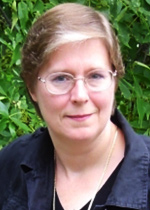
In many tales, of course, cryonics is simply used as a method to get characters into a future that we-the-readers can then experience over their shoulders. (See: Futurama for the ultimate devolution of this lone-hero trope.) But I got to thinking — what if everybody wanted to get in on the game? What would a society look like if everyone was trying to emigrate into their own future that way — and how would the residents of that future feel about this wave of interlopers, double-dipping on life when the current people hadn’t even had one turn yet? What, in short, would the demographic conflicts be like if a whole society dedicated itself to this?
These SFnal issues, plus the thematic issues of Miles’s next life-stage, dovetailed neatly.
Also, any number of readers had bitched and moaned mightily about the presence of romance in some of my recent work, so I threw them a book with all politics (and techno-politics) and no romance. We’ll see if they like that any better.
MJ: Many of the worlds in your Vorkosigan universe are based in various cultures on Earth. The Vorkosigan Empire is born out of Russian stock, it appears. Do the books (and Miles) have a large international following as well?
LMB: The Barrayaran Firsters were mainly Russian, British, French, and Greek, all thrown into a very lumpy melting pot. My books have been translated into about twenty languages, so far. Some of these SF markets are really tiny, but it’s always cool to see the translations (Shards of Honor in Hebrew, good grief!), and wonder what I wrote. My most successful translations seem to be in Russian — there’s an active Russian fan base which has hit the internet, now — French, and Japanese.
MJ: Your books cross genres regularly. Many mix elements of fantasy, mystery, humor and romance into the central storylines. Are they planned or do they develop organically as you write?
LMB: They develop organically. (With lots of planning tucked in where needed.) Characters generate plots.
MJ: One cross-genre aspect of your books that I like is that the relationships you develop between characters are complex and well done. Is it a strength of yours to write romance well?
LMB: I don’t think that’s a judgment for me to make. You’ll have to ask the readers (who, if they run true to form, will disagree vociferously and bafflingly with one another.)
MJ: Miles is one of the most memorable characters I have read. You write the male "it seemed like a good idea at the time" thought processes scarily well. Does he have any real-life influences on his character creation? How did you come up with the character?
LMB: Every once in a while — a couple of times a year — I still get nonplussed notes from male readers, sometimes quite long-time ones, who’ve just found out I’m a woman. I have not, to my knowledge, ever had a female reader make that mistake. Make of that what you can.
Like most characters, Miles is an amalgam who is forged by the events of his books into an alloy, and becomes himself through his actions (and he’s exceptionally active.)
He actually began as a thing to do to Aral and Cordelia — I first envisioned him back when I was still writing Shards of Honor. I knew their first son and heir would be born damaged, and be smart, short, and difficult. I knew that before I knew his name or that he would be an only child. With that for a magnetic core, he began to attract other elements. Direct inspirations include T.E. Lawrence, another ambitious soldier who was brilliant, squirrelly, and short, and a physical template from a hospital pharmacist I used to work with back in my 20s, from whom I stole the height, physique, chin tic and leg braces. Miles’s “Great Man’s Son” syndrome comes from my relationship with my own father, who was a professor of engineering of international repute.
MJ: What’s next? Do you have anything underway?
LMB: I’m working on a series prequel, a sort of bon-bon for series fans (and me) starring Miles’s feckless cousin Ivan. The mode so far is comedy/romantic-suspense or something like that. It ran well last winter, stalled in the summer, was totally derailed by the extended CryoBurn promotional push, and has just undergone corrective surgery in an effort to get it to walk upright once more. We’ll see. No contract or deadline at present, to my immense relief. Some fans recorded the readings I did from Chapter One on the recent book tour, which are up on-line somewhere. No title or pub date yet, either.
10 Questions – Peter F. Hamilton
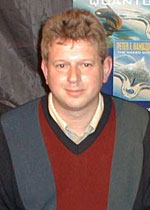 There are many things that Great Britain has given to the world: a good cup of tea, fish and chips, and an accent universally used for villains and ancient Romans in movies. But we also owe thanks to Britain for Peter F. Hamilton, one of the most popular and gifted Science Fiction authors to hail from Albion.
There are many things that Great Britain has given to the world: a good cup of tea, fish and chips, and an accent universally used for villains and ancient Romans in movies. But we also owe thanks to Britain for Peter F. Hamilton, one of the most popular and gifted Science Fiction authors to hail from Albion.
Mr. Hamilton has penned many acclaimed short stories and novels, including the Commonwealth Saga and the Void Trilogy, along with Fallen Dragon, which was nominated for the John W. Campbell Memorial Award and the Arthur C. Clarke Award, as well as The Nano Flower (book 3 of the Greg Mandel Trilogy), which was nominated for the British Science Fiction Association Award.
We spoke to Mr. Hamilton recently and he was kind enough to answer our 10 questions. Here’s what he had to say:
1. Thank you for the interview, Mr. Hamilton. May we start off please with a view to your upcoming projects? What will we see from you in 2010 and 2011?
In 2010 you’ll see The Evolutionary Void, the final part of the Void trilogy. Then in 2011 the collection, Manhattan in Reverse will be published. It contains all the short stories I’ve written in the last eight or so years, and as my short story output is so small I’ll be writing a couple of additional shorts for the collection.
2. Where does the title "Manhattan in Reverse" come from?
It’s the title of one of the stories which I’m writing for the collection. It actually refers to how Manhattan was sold to Dutch settlers in 1626. The story features my genetically engineered detective, Paula Myo, and is set just after the end of Judas Unchained.
3. In your previous works, i.e. the Commonwealth Saga and the Void Trilogy, you’ve given us some enticing and thought- provoking technological advances, such as wormhole- based-technology, cyborg-like modifications, and enhanced genetic design. Do you see any of the technologies in your books being developed in the present day?
Some of the data systems and software is certainly pretty close, but the kind of hardware you’ve just mentioned is still a long way off by my understanding. I tend to do some long range extrapolation for books set that far in the future.
4. Some of the most interesting concepts in the Commonwealth Saga is that of rejuvenation and "re-life". Do you think humanity could handle or deal with these concepts in reality?
Ultimately yes, we could grow into an extended life from a psychological perspective, but it would require not just a change of attitude but a pretty large shift in society and our economic structure to accommodate such a thing.
5. Would you prefer to live in one of the worlds (in the time frame of your novels) that you’ve created? Or is there a period in the past that you would prefer to live?
No to the past, not enough medicine and dental care back then for my liking. I’d say the period immediately after Judas Unchained would be an interesting time to live in, with opportunities opening up in every direction.
6. One of the technological advances that authors and readers alike are faced with is the migration, or the partial migration, to e-content. How is this effecting what you release? What do you think the reading/ publishing landscape will look like in 10 years time?
It doesn’t affect novels so much at the moment, though I suspect we might see a higher illustration/animation content creeping in over the next few years. I’m primarily noticing its use as a marketing and promotional tool; several short stories from the collection will be released by Del Rey for free to promote future works.
7. Along with great concepts, your books have also given us some great characters. Which of them is your favorite? (Perhaps Ozzie/ Oswald Fernandez Isaacs?) Which of your characters would you most want as a friend?
I really enjoy writing Gore, but I suspect he wouldn’t want me as a friend.
8. How do you develop your characters? Do they "grow" on their own, or do you base them on people you know or read about?
Some are based on people I know, but I’m quick to point out that the original is just a seed and I develop the characters as the book progresses and they encounter events that force them to change and grow.
9. Are there any non- Science Fiction/ Fantasy authors that have influenced your work?
Not a lot. But I have to admit that my current reading time is minimal. I’m only managing two or three books a year now.
10. Part of what we do at WorldsWithoutEnd.com is track the awards for Science Fiction and Fantasy. If you could have your own award, the prestigious "Hamilton Award", what would your criteria be?
A science fiction novel that was highly entertaining, but managed to slip in a few things to think about under the radar.
Many thanks to Peter Hamilton for taking time to answer our 10 questions and special thanks to Gary Garrison for helping with the interview.
Ben Bova Interview
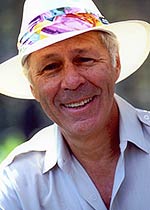 Recently, I had the opportunity to speak to famed science fiction writer Ben Bova about his remarkable career, science and science fiction in the near future, and his latest works. Bova has authored more than 115 fiction and nonfiction books and has a huge and loyal following – myself included.
Recently, I had the opportunity to speak to famed science fiction writer Ben Bova about his remarkable career, science and science fiction in the near future, and his latest works. Bova has authored more than 115 fiction and nonfiction books and has a huge and loyal following – myself included.
Dr. Bova is President Emeritus of the National Space Society and a past president of Science Fiction and Fantasy Writers of America. Two facts that help explain why his novels often morph from fiction into prophecy; at least two American companies are working on producing the orbital power-generation technology depicted in his novel Powersat.
Best known for his Grand Tour series, Ben Bova is widely regarded as the eminence grise of the space exploration sub-genre. His many accolades include a Lifetime Achievement Award from the Arthur C. Clarke Foundation, a Campbell Award in 2006 for his novel Titan and a 1979 Locus SF Award nomination for Colony.
C. J. Cherryh on Top
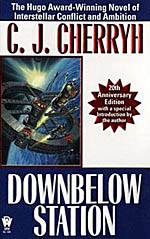 C. J. Cherryh is one of the most accomplished and popular names in the business. As you can see in our database, Ms. Cherryh has earned many plaudits for her work including 18 nominations across the 10 awards we cover here on WWEnd. Downbelow Station won the Hugo Award for Best Novel in 1982, a feat she repeated in 1989 with Cyteen which also won the Locus SF award that same year. Her Fortress Series and 9 volume Foreigner series have garnered many nominations and remain some of her most popular books.
C. J. Cherryh is one of the most accomplished and popular names in the business. As you can see in our database, Ms. Cherryh has earned many plaudits for her work including 18 nominations across the 10 awards we cover here on WWEnd. Downbelow Station won the Hugo Award for Best Novel in 1982, a feat she repeated in 1989 with Cyteen which also won the Locus SF award that same year. Her Fortress Series and 9 volume Foreigner series have garnered many nominations and remain some of her most popular books.
Earlier this week, Ms. Cherryh was kind enough to answer a few questions on behalf of WWEnd readers. Here’s what she had to say:
CW: We seem to be moving toward a world where books are changing into e-content, and the old familiar paradigm of author, publisher, bookstore, reader seems to be evolving. With many of your titles available now as e-books (or free downloads, thank you for that!) what do you think this means for the author- end of the food chain?
CJC: We eat better. Right now many publishers have the notion that, short-term, they can cut out the trucks, the warehouse, the printing, and all of that, yet still pay the author 8-10% of cover price—when I can do the same job myself and get 100% of cover price. I’m not even a bad cover artist, I live with a better one, and my brother is one. The publishers need to take a good hard look at this situation and make some meaningful proposals for the survival of New York Publishing as we know it, or something is going to give, and soon.
Not o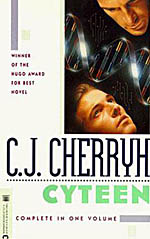 nly that—the oil companies that bought the publishing houses in the 70’s are now thinking they can just shove real science fiction aside and we’ll just wilt and fade away. Wrong. We’re the very people with the very readership who are most dangerous to their way of doing business.
nly that—the oil companies that bought the publishing houses in the 70’s are now thinking they can just shove real science fiction aside and we’ll just wilt and fade away. Wrong. We’re the very people with the very readership who are most dangerous to their way of doing business.
CW: Are there any non- Science Fiction/Fantasy authors that have influenced your work?
CJC: Publius Vergilius Maro, Conan Doyle, if you can count him, and Jeffrey Farnol.
CW: What great new authors have you discovered recently?
CJC: None recently, but I’ve been re-reading. Project Gutenberg is a great resource.
CW: Do you have any advice for the new writers coming up through the ranks?
CJC: Get published in paper first, get a readership and THEN go e-book.
CW: Charles Dickens famously arranged objects into exact positions whenever he wrote. Stephen King took a vitamin with tea or water whenever he sat down to write. What would you say is your most interesting writing quirk?
CJC: I write to disaster documentaries on Science and Discovery.
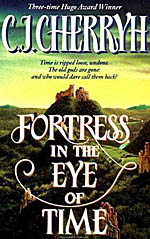 CW: Can you please tell the readers of WWEnd about your latest projects, what is forthcoming, etc.?
CW: Can you please tell the readers of WWEnd about your latest projects, what is forthcoming, etc.?
CJC: Closed Circle is a joint e-publishing venture with Jane S. Fancher and Lynn Abbey: we are recovering our backlist and bringing it out ourselves, and we may be doing new work specifically for our own publishing venture—as well as continuing traditional paper publishing via our usual publishers.
CW: Lastly, part of what we do at Worlds Without End is track the Science Fiction and Fantasy awards. If you could have your own award, the much-coveted "C.J. Cherryh Award", what would your criteria be?
CJC: Interesting question: I would say innovation, scientific information, accuracy, and literary quality.
Those are the very things that are evidenced in her own work.
We’d like to thank Ms. Cherry again for her time. She’s obviously very busy these days with her new publishing venture. We look forward to checking out her Closed Circle work and her other new titles soon.
Robert J. Sawyer Interview
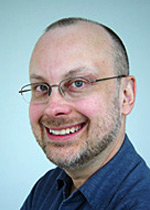 Worlds Without End’s Matthew Jones had the chance to interview Hugo Award-winning science-fiction writer Robert J. Sawyer a couple weeks ago.
Worlds Without End’s Matthew Jones had the chance to interview Hugo Award-winning science-fiction writer Robert J. Sawyer a couple weeks ago.
Rob is one of the world’s leading science fiction authors, and recently held a book launch for his 18th novel, Wake, in which the World Wide Web gains consciousness. We also visit with him about the new prime time TV series coming out based on Rob’s novel, Flashforward, that will air this fall.



















 Full Details
Full Details
